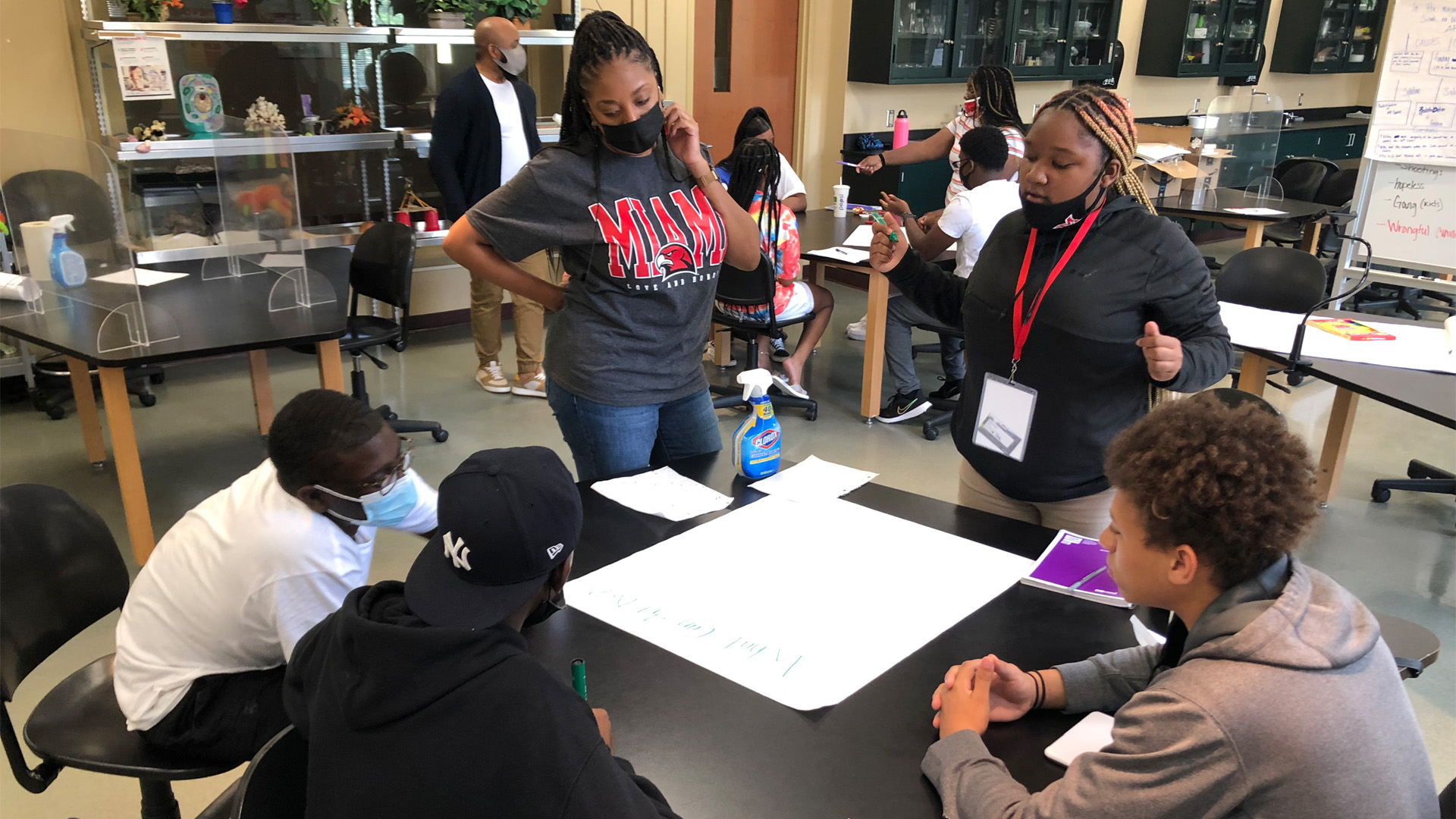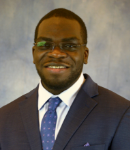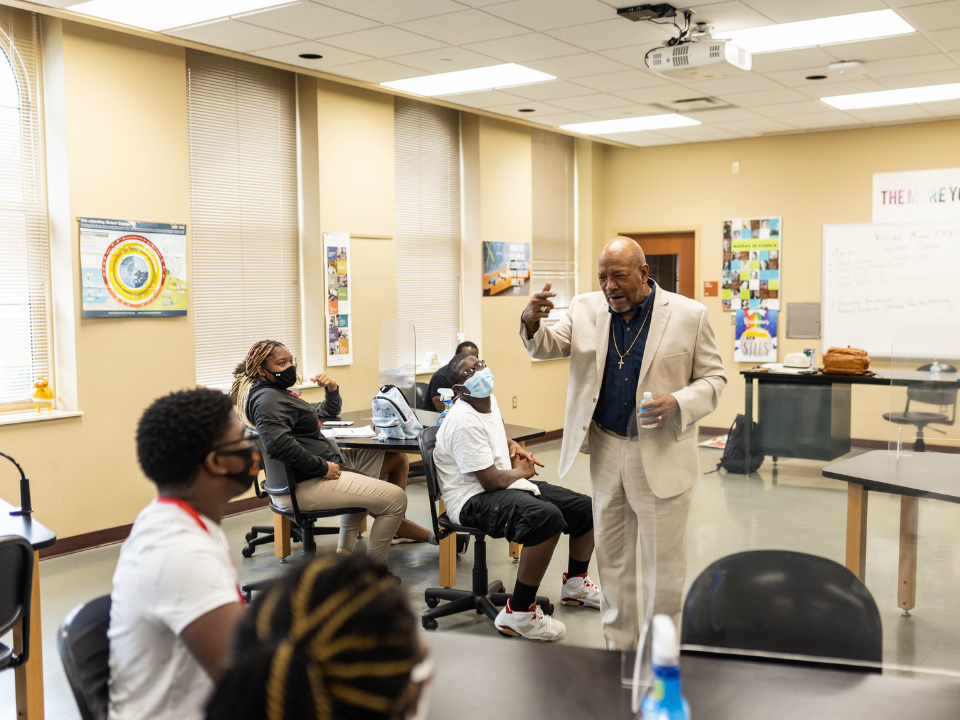Freedom Summer Scholars host Aiken High School students to help diversify teaching


By James M. Loy, Miami University
Nearly 60 years ago, the Civil Rights Movement gave rise to Freedom Schools, which in turn raised important questions about the quality and equality of education in America.
This summer, the spirit of that struggle lived on at Miami University, where a group of Aiken High School students -- each an aspiring educator -- participated in the Freedom Summer Scholars program. For two weeks, they focused on Black history and Black education as a way to help diversify the teaching profession.
 “If you don't know your own history, it would be impossible for you to teach that history,” said Nathaniel Bryan, Miami University assistant professor of teacher education. “So we wanted to foreground Freedom Summer and Freedom Schools as part of this initiative.”
“If you don't know your own history, it would be impossible for you to teach that history,” said Nathaniel Bryan, Miami University assistant professor of teacher education. “So we wanted to foreground Freedom Summer and Freedom Schools as part of this initiative.”
Offered as part of Miami’s Summer Scholars and named after the enduring legacy it exemplified, Freedom Summer Scholars was made possible by a $10K grant from Duke Energy, $5k from Miami’s College of Education, Health and Society, and an additional $3.4k from the Department of Teacher Education.
The program also furthers a partnership between Miami and Aiken called MU Teach. MU Teach aims to inspire more students of color to become educators by emphasizing culturally relevant teaching, critical conversations about race, gender, and equality, as well as Black history and Black culture.
“It's making me enjoy school more,” said MU Teach student Jai'Nya Chinn. “Because usually we just learn about people that don’t look like us. We never learn anything about our culture and our history. We get our little month. But we don't learn anything outside of that.”
As a Freedom Summer Scholar participant, Chinn and her Aiken classmates dove even deeper into these topics.
“After working in Cincinnati Public Schools for years, what’s lacking is the teaching of our history, especially our history as Black Cincinnatians,” said Aiken teacher and Miami alumna Rachel McMillian. “I want them to recognize their history, and then teach it to others in the future. Seeing them learn that has been very valuable.”
Co-led by Bryan and McMillian, the on-campus summer program engaged students with a variety of activities, discussions, and field experiences.
Guest speakers brought alternative historical and contemporary perspectives to life as well.
“Let me tell you another story,” said Rodney Coates, Miami professor of critical race and ethnic studies, as he spoke to students about a Black educational experience that diverged from most traditional mainstream narratives. 
Throughout his talk, Coates encouraged students to think critically about education, while explaining how cultural biases and systemic inequalities have led directly to disparities in school funding, the school-to-prison pipeline, and more.
Other activities included an art-based workshop led by Durrell Callier, Miami assistant professor of educational leadership, and a visit to the Freedom Summer Memorial on Miami’s Western Campus, where students discussed and reflected upon the quotes inscribed around the monument.
As a final project, the students began work on a podcast that will continue as part of MU Teach back at Aiken this fall.
By covering the history of Freedom Summer, the realities of Black education, and a reimagining of what Black education can become, the final project also helped students understand the kind of teachers they want to be and the vital role they can play.
“I want to be a teacher because I've had good teachers, and I’ve had bad ones, and the good ones have influenced me to help younger generations,” said Aiken student Leonard Dangerfield. “I want to be a math teacher because that's an important subject. A lot of people get lost in math, and if the subject they're struggling with is my subject, I want to help them learn it easier.”
For Bryan, Freedom Summer Scholars was not only a way to help students connect with their history and heritage. It also allowed them to grapple with serious social issues, while simultaneously presenting a more promising way forward.
“One thing I would like them to take away is that they don't have to do schooling the way they have experienced schooling,” Bryan said. “They can push the boundaries and challenge traditional norms. We have so much data that suggests that schools dehumanize students. They can challenge those things and really address the field in culturally relevant and responsive ways. That's exciting, and it's extremely powerful.”

